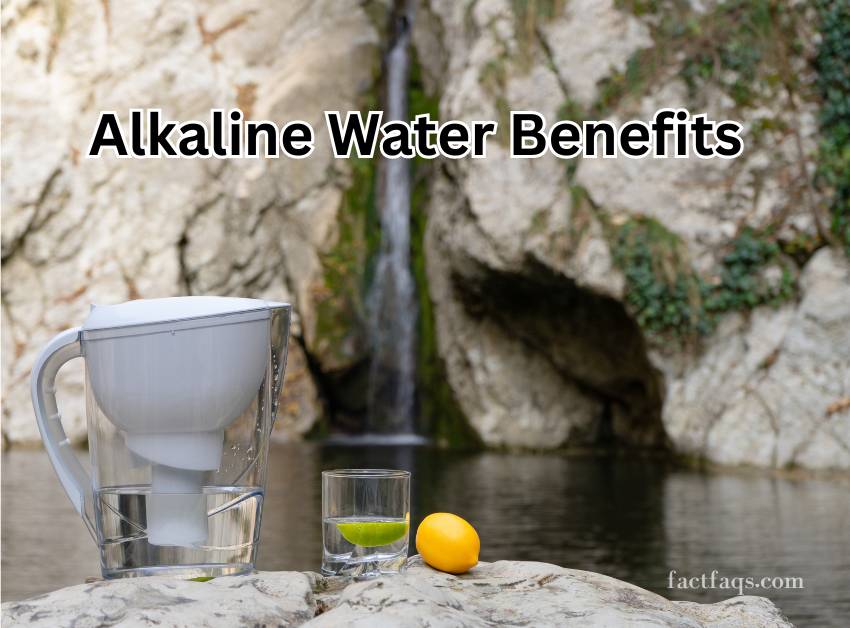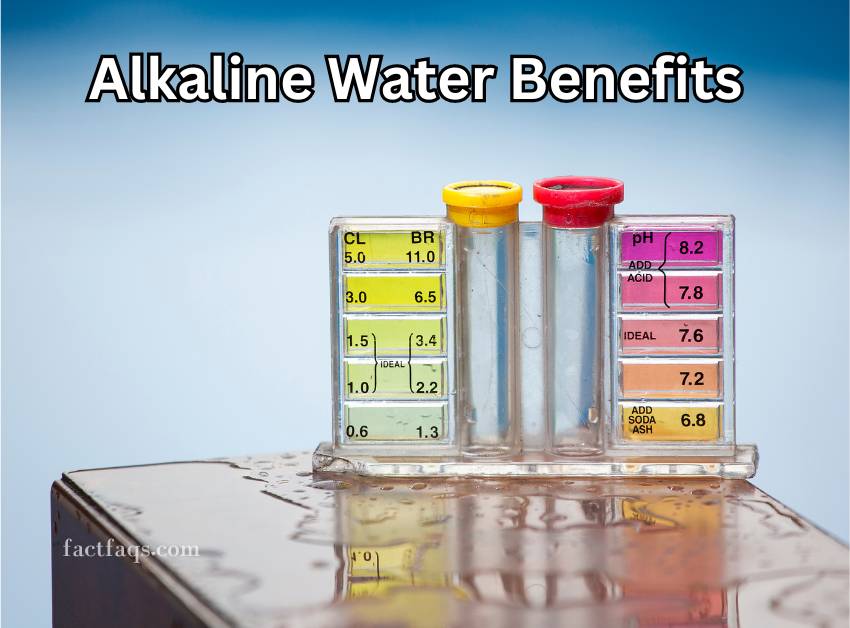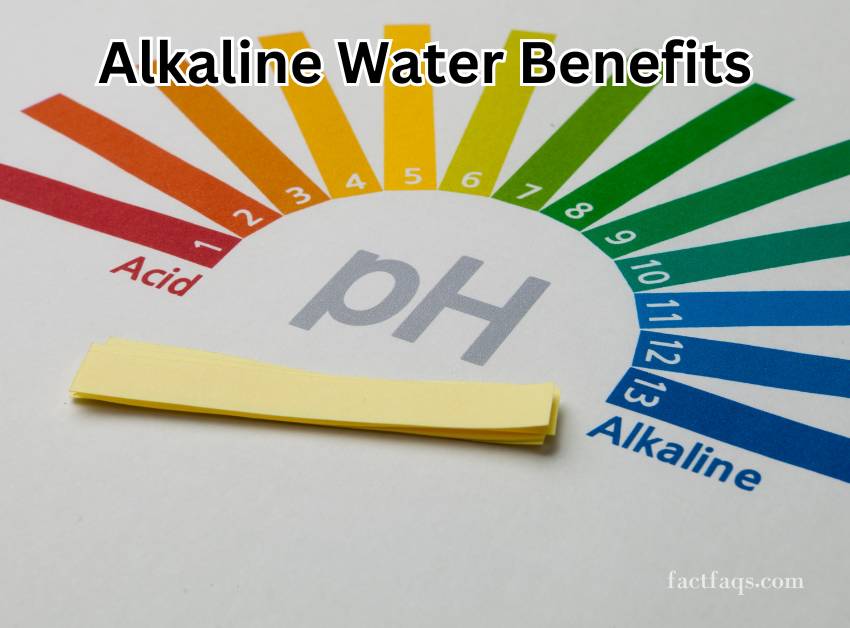Alkaline water has a higher pH level than regular drinking water. It’s touted for its potential health benefits.
Alkaline water, characterized by a pH above 7, stands in contrast to standard drinking water. This type of water often contains alkaline minerals and negative oxidation-reduction potential (ORP). ORP refers to water’s ability to act as a pro- or antioxidant.
The higher the water’s pH, the more potential it has to negate free radicals and act as an antioxidant. Advocates of alkaline water suggest it can neutralize the acid in the bloodstream, leading to increased oxygen levels and improved energy and metabolism. It also claims to help prevent various types of illness and can slow the aging process, along with cleansing the colon. Critics, however, call for more research, citing the lack of definitive evidence supporting these health claims. Despite the debate, its popularity continues to grow among health-conscious consumers seeking enhanced hydration options.
Introduction
Alkaline water, often considered a modern elixir among health enthusiasts, is believed to offer numerous benefits over its plain counterpart. Charged with a higher pH level, this type of water is said to counteract the acid found in the bloodstream, potentially improving overall health.
Proponents suggest it can aid in slowing aging, regulate pH levels in the body, and prevent various chronic diseases. Although scientific debate continues, the interest in alkaline water has surged, leading many to wonder whether making the switch could lead to a healthier lifestyle.
Offering a distinct taste, it contains essential minerals like calcium, potassium, and magnesium, which are pivotal for maintaining bodily functions. Donning the shelves of health stores and climbing its way into daily routines, alkaline water’s popularity shows the public’s growing interest in health-conscious living.
Types Of Alkaline Water

Understanding the different types of alkaline water can be crucial for those who prioritize their health and wellness. Natural alkaline water originates from springs where it acquires minerals—and consequently a higher pH—as it passes over rocks. Alternatively, artificial alkaline water is created through a chemical process called electrolysis, which uses an ionizer to raise the pH level.
Some choose to add alkaline tablets or drops to regular water to achieve a similar effect, though the efficacy and health benefits of this method may vary. It’s essential to consider the source and creation process because they can affect not only the water’s pH level but also its mineral content and potential health advantages.
With several options available, consumers have the flexibility to select a type of alkaline water that aligns with their personal preferences and lifestyle choices.
Comparisons And Considerations
Exploring the world of hydration, one cannot ignore the rising trend of alkaline water, which claims to offer superior health benefits compared to its neutral pH counterparts. Delving into the evidence, it’s vital to weigh the potential pros against any cons, considering personal health goals and scientific backing.
The market teems with an array of brands touting high pH levels, each with unique mineral content and purported wellness enhancements. Deciphering the differences requires a discerning eye for quality, filtration methods, and the veracity of health claims. Trustworthy sources and peer-reviewed studies provide a firmer ground upon which consumers can base their choices, ensuring the move to alkaline water is not just a leap of faith but a step toward informed consumption.
Enthusiasts support the notion that such water can help balance bodily pH, yet skeptics urge a critical approach, as the body typically maintains homeostasis independently.
Also Read:
The Unusual Properties of Water:
Specific Alkaline Water Brands
Exploring the landscape of hydration, particular brands of alkaline water have garnered attention for their mineral-rich content and pH levels exceeding the neutral mark of 7. Enthusiasts often tout the potential health benefits, ranging from improved digestion to detoxification properties.
Market shelves display a myriad of options, such as Essentia, which boasts a 9. 5 pH balance, or Icelandic Glacial, delivering pristine water from the Icelandic springs with a naturally high pH. Each brand claims a unique source and filtration process, striving to offer not just hydration but also a mineral-infused sip that aligns with consumers’ increasing wellness focus.
Careful consideration is given to packaging as well, with many opting for eco-friendly materials to appeal to environmentally-conscious drinkers. Amidst the variety, consumers are encouraged to research and select a brand that not only satisfies their palate but also aligns with their health and environmental ethos.
Health And Wellness Aspects
Understanding the implications of alkaline water on health and wellness has piqued the interest of many seeking to optimize their well-being. This type of water, characterized by its higher pH level compared to regular drinking water, has been associated with numerous health claims.
Proponents suggest that it can neutralize acid in the bloodstream, leading to improved metabolism, increased energy, and even slowing down the aging process. Skeptics, meanwhile, urge for more scientific research, as evidence supporting these benefits remains limited. Individuals need to delve into reliable sources and consult with healthcare professionals before making significant changes to their hydration habits.
Including alkaline water as a part of one’s daily routine could offer potential benefits, yet it’s crucial to approach this topic with a discerning eye toward both its advantages and the scientific validity behind them.
Ph Levels And Beyond
Understanding the impact of pH levels on your body begins with recognizing the significance of maintaining balance. Alkaline water, often with a pH above 7, is said to contribute to this equilibrium by neutralizing excess acidity commonly attributed to the modern diet.
Proponents suggest that by consuming water with a higher pH, individuals may notice improvements in digestion, hydration, and overall well-being. Debates within scientific circles persist about the extent of the benefits, yet a growing number of health-conscious consumers are exploring alkaline water as part of their wellness routine.
It’s important to approach claims with a critical eye and consider the role of comprehensive dietary adjustments in tandem with hydration choices.
Technical Aspects
Exploring the technical aspects of alkaline water, it’s essential to understand the science behind its pH level. Typically, this type of water boasts a higher pH than regular tap water, courtesy of a mineral-rich composition that can include potassium, calcium, and magnesium.
The presence of these minerals not only alters the water’s pH but also has led to claims about health benefits. Advanced water ionizers can raise pH levels by electrolyzing water, which separates it into acidic and alkaline components.
Another critical factor to consider is the ORP (Oxidation Reduction Potential) value, which measures the antioxidant properties of the water. While consumers gravitate towards alkaline water for various reasons, ranging from hydration to potential health effects, it’s crucial to sift through marketed claims with a lens of scientific scrutiny to discern verifiable facts from wellness trends.
Common Questions And Concerns
Alkaline water has sparked considerable debate regarding its potential health benefits, leading many to sift through a wealth of information for clarity. Questions often arise about its impact on body pH balance and if it truly differs from regular tap water.
People frequently inquire about the science behind the water’s alkalinity and whether it can lead to measurable improvements in well-being. Some express concerns about the long-term effects of drinking water with a higher pH, pondering the body’s ability to maintain its natural homeostasis.
Scrutiny also extends to the methods used to produce alkaline water, with a spotlight on the filtration systems and their effectiveness. Curiosity is further piqued by anecdotes from those who swear by its advantages, creating a juxtaposition between personal experiences and scientific studies.
Navigating these questions is essential for anyone considering integrating alkaline water into their daily routine.
Miscellaneous Topics
Exploring the benefits of alkaline water reveals some intriguing possibilities for maintaining health and vitality. While the subject often sparks debate, proponents argue that its higher pH level can counteract excess acidity in the body, potentially reducing the risk of certain chronic diseases.
Skeptical? It’s important to delve into scientific research before concluding. People have reported improved hydration, but empirical evidence is necessary to support these claims. Critics question its efficacy, suggesting that the body’s natural mechanisms are adequate for maintaining pH balance.
This conversation is far from settled, challenging enthusiasts and detractors alike to present more comprehensive studies to unravel the true impact of alkaline water on our well-being.
Conclusion
Understanding the benefits and potential drawbacks of alkaline water is crucial for making an informed decision regarding your hydration needs. Personal research and consultation with a healthcare professional can provide guidance tailored to individual health concerns. It’s essential to consider the body’s natural mechanisms for maintaining pH balance and to recognize that alkaline water might complement these processes for some people.
Remembering that moderation is key can assist in avoiding negative health impacts that could arise from extreme alterations in dietary intake. Opting for high-quality sources of alkaline water ensures that you receive the maximum potential advantages while mitigating risks, allowing you to integrate this element into a balanced and health-conscious lifestyle with confidence.

Frequently Asked Questions Of Alkaline Water
What Is Alkaline Water?
Alkaline water has a higher pH level than regular drinking water. It’s claimed to neutralize acid in the bloodstream, leading to various health benefits.
Can Drinking Alkaline Water Improve Health?
Some people believe alkaline water helps maintain optimal health by balancing the body’s pH levels. However, scientific evidence is limited and more research is needed.
How To Make Water Alkaline?
Water can be made alkaline by adding baking soda or lemons, or through a water ionizer that raises its pH level. It’s a simple process that can be done at home.
Does Alkaline Water Hydrate Better?
Alkaline water is often said to provide superior hydration due to its mineral content, but studies haven’t conclusively proven it hydrates better than regular water.
Conclusion
Embracing alkaline water could be a step towards balanced well-being. Its potential health benefits make it a trend worth considering. While evidence varies, the positive experiences shared by many speak volumes. As we continue to explore wellness options, keeping an open mind to alkaline water might just be the refreshing change needed for a healthier lifestyle.
